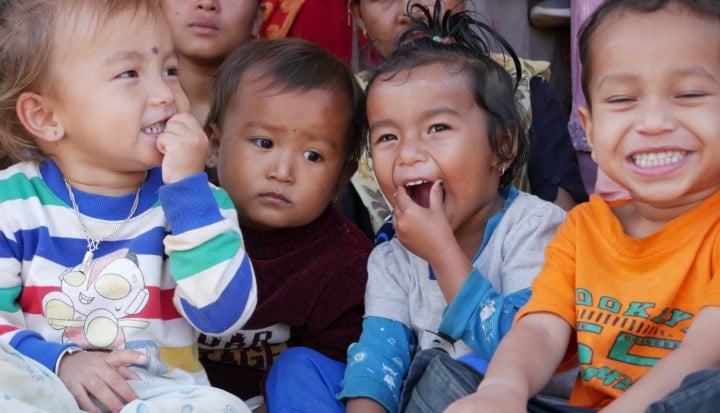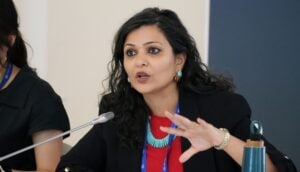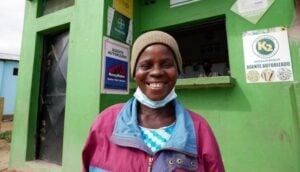Two-year-old Hanvi Rana giggles as she pushes herself forward on a plastic motorcycle, weaving between the other toys scattered across the playroom.
As one of 15 small children dropped off at this Nepali childcare center, the cheerful toddler is developing important cognition and social skills as she busies herself with playthings and educational games.
Just as important, her mother now has time for other responsibilities. For three hours each weekday, Bimala Saru can turn her attention to household chores and tending her vegetable garden, while Hanvi attends free childcare.
“Since the establishment of the childcare center, things have become much easier for us,” says Bimala. “Our children learn new things and make friends while us mothers are free for hours and can do our work.”
Under a new initiative, iDE is funding the Baraha Child Care Center here in Baddichaur village, in rural southwest Nepal, as part of a broad effort across this developing south Asian nation to promote gender equality, providing women with livelihood opportunities and economic emancipation.
To assist the childcare center, for example, iDE accessed a Paul Polak Innovation Fund grant to support the center, installing a toilet, paying a caregiver’s salary and providing toys and cooking utensils.
Soma Kumari Rana, iDE Nepal gender equality and social inclusion officer, said rural women in Nepal were often left behind to raise children and work household farms themselves as their husbands migrated to neighbouring countries for work.
“Because women are forced to engage in household activities, their economic and social status has been compromised,” says Rana. “Women here need time to develop their entrepreneurial skills, which is what this childcare center provides them.”
Rana said the center was a model for other potential centers across Nepal and served as a hub for women’s empowerment, as the mothers also accessed training on child nutrition, education, health, and hygiene, as well as agricultural skills development.
“For example, the child center mothers receive training on techniques for growing tomatoes. They learn about nursery preparation, seed selection, and other nursery-related activities.
As an international nonprofit committed to ending poverty, iDE integrates gender equity and social inclusion into projects across the globe, ensuring the organization’s work is inclusive and impactful for all. Going forward, iDE plans to double down on this effort, with an additional focus on women entrepreneurs.
Moreover, iDE aims for 80 percent of its projects to be considered as “gender transformative” meaning our programming will address the social, cultural, and market dynamics that perpetuate barriers to women-owned and led business.
While iDE continues to work with men, it recognizes that when women prosper, they deliver benefits not only to themselves and their families, but to whole communities.









